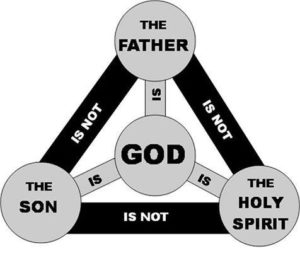Article by Matthew Tuininga, From the 9Marks Journal (original source here):
Soon after John Calvin was appointed as a pastor of the Genevan church, having only recently arrived as a refugee fleeing persecution in his native France, one of his first actions was to petition the city government for the establishment of church discipline. It was a hard sell. In no other Reformed city had the civil magistrates given clergy such authority. The reformers Zwingli and Bullinger maintained that overseeing the moral lives of Christians was a task for the civil magistrate. Most Reformed theologians and magistrates associated ecclesiastical discipline with papal tyranny.
Calvin acknowledged that the Roman church had grievously abused discipline by wielding it tyrannically to accomplish all manner of church goals. To prevent this evil, he called the magistrates “to ordain and elect certain persons of good life and witness from among the faithful” to shepherd the people on behalf of the church as a whole. These elders, along with the pastors, would bind themselves to the procedure laid out by Jesus in Matthew 18, by which professing Christians were to be held accountable to one another in the life of Christian discipleship.
CALVIN AND HIS CONSISTORY
While the city council granted the pastors’ request in principle, it soon became evident that there was little agreement in practice. Calvin found himself banished from the city. Within three years, however, the city asked him to come back. Though he was reluctant, he agreed to return under the condition that church discipline be established. The city relented, though nearly 15 years of conflict remained before the consistory—the body of pastors and elders charged with the ministry of church discipline—could rest secure from political interference.
Calvin’s consistory disciplined members of the Genevan church for a wide range of sins including idolatry, violence, sexual immorality, marital problems, and interpersonal conflict. They disciplined men who abused their wives and children, sons who refused to care for their aging parents, landowners who exploited their tenants, doctors who failed to care properly for the sick, merchants who practiced price gouging or sought to prevent economic competition, and employers who exploited or mistreated their workers. While many people were brought before the consistory, temporarily barred from the Lord’s Supper, and required to express public repentance or reconciliation, very few were permanently excommunicated (i.e., banished from participation in the sacraments).
DISCIPLINE: AN EXTENSION OF THE WORD
Calvin viewed discipline as a necessary extension of the church’s ministry of word and sacrament. While he did not identify it as a mark of the church, he did insist that discipline is essential to the spiritual health of a church, without which a church cannot long endure.
Discipline was necessary to preserve the honor of God and the integrity of the Lord’s Supper, to protect the members of the church from being led astray by other members, and to call those who were straying to repentance.
DISCIPLINE & THE LORD’S SUPPER
At the heart of Calvin’s passion for the exercise of church discipline was his concern that the Lord’s Supper not devolve into a mere ceremony of hypocrisy. The Lord’s Supper is not simply a celebration of the forgiveness of sins, he argued, but a communion of brothers and sisters in “love, peace, and concord.” Calvin again: “None of the brethren can be injured, despised, rejected, abused, or in any way offended by us, without at the same time injuring, despising, and abusing Christ by the wrongs we do; that we cannot disagree with our brethren without at the same time disagreeing with Christ; that we cannot love Christ without loving him in the brethren; that we ought to take the same care of our brethren’s bodies as we take of our own; for they are members of our body; and that, as no part of our body is touched by any feeling of pain which is not spread among all the rest, so we ought not to allow a brother to be affected by any evil, without being touched with compassion for him” (Institutes, 4.17.38).
In short, when Christians celebrated the Lord’s Supper while exploiting, oppressing, or abusing one another, they made a mockery of it.
DISCIPLINE: SPIRITUAL, NOT POLITICAL
Calvin insisted that discipline is not an expression of political power but of spiritual power. It is not coercive but pastoral. To be sure, when wielded arbitrarily, church discipline devolved into mere tyranny. But Calvin insisted that a person could only be disciplined for conduct that was clearly and manifestly sinful according to Scripture, and only as long as the person refused to repent of that conduct.
Furthermore, where sin was so obvious, notorious, and persistent, the elders and pastors of a church exercising church discipline would merely be proclaiming the truth of God’s Word as it applied to an unrepentant individual. As such, like preaching, discipline was one of what Jesus called the keys of the kingdom of heaven, opening the kingdom to the repentant through the proclamation of the gospel and closing it to those who refused to repent.
As Calvin puts it: “The Lord testifies that such judgment by believers is nothing but the proclamation of his own sentence, and that whatever they have done on earth is ratified in heaven. For they have the word of God with which to condemn the perverse; they have the word with which to receive the repentant into grace. They cannot err or disagree with God’s judgment, for they judge solely according to God’s law, which is no uncertain or earthly opinion but God’s holy will and heavenly oracle” ( Institutes, 4.11.2).
DISCIPLINE & THE GOAL OF SALVATION
What was crucial for Calvin was that the ultimate purpose of discipline is not vengeance but salvation. He rejected the practices of ongoing penance or ritual humiliation, warning that “zeal for discipline” often leads to “pharisaical rigor” that “hurries on the miserable offender to ruin, instead of curing him” (his commentary on 2 Corinthians 2:11). As soon as a disciplined person repented, he or she was to be immediately welcomed into full communion.
When conducted graciously and according to Christ’s word, discipline ensured that the church did not proclaim a false and empty gospel of cheap grace but a gospel with power to draw human beings into genuine communion with God and one another. Calvin: “[E]xcommunication does not tend to drive men from the Lord’s flock but rather to bring them back when wandering and going astray” (Commentary on 2 Thessalonians 3:15).
For Calvin, discipline expressed the love of a father who does not allow his children to go astray to their own hurt or death but uses restraint and correction where necessary to ensure their flourishing. It’s necessary to the health and survival of a church because it ensures that the religion we practice is not the religion of hypocrisy but of grace that leads to righteousness and life.
For more: https://www.9marks.org/article/a-biblical-theology-of-church-discipline/




